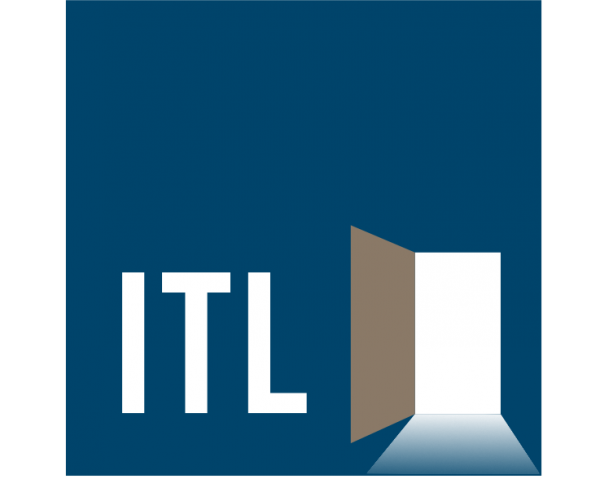ITL:
What in your mind is the biggest issue facing agents and brokers these days?
Kevin Trokey:
I think, right now, it's more important for them to have the basics of running their business down than ever before. So many of these agencies were started by people who were producers for other agencies. They had a certain level of success and decided to go out on their own and grow a book of business. They hired a couple of people, and all of a sudden they have a business to run. But nowhere along the way has anybody really sat down and kind of mentored them on how to run the business. A lot of the basics just aren’t there, whether it is annual planning, whether it's goal-setting, whether it's leadership development.
One of our longtime sayings is that the financial reward for mediocrity in this industry has been excessively high. I don't mean any disrespect. This industry provides unbelievable value, and I absolutely believe that in most instances people earn the compensation they receive. But overly generous compensation covers a lot of sins. And with the challenges that we're seeing -- you know, whether it’s the pandemic or the Great Resignation or something else – agents and brokers are being forced to be more transparent and explain and justify their compensation. That means a lot more pressure on having the basics locked down.
ITL:
How do you recommend people get those basics locked down?
Trokey:
Well, this will sound promotional, because that's where we come in. But there's not a lot of mystery to it. You start with, what does success look like? We always start with, what's your vision of who you need to become in two or three years? Are you on the path to get there?
So much has to start with the sales process. You have to lock in on how you grow your business: how you put opportunities in the pipeline, how you follow a sales process that moves those opportunities through the pipeline, how you keep the pipeline healthy, how you have predictable, healthy growth. You have to know how you're going to put the right number of the right opportunities in the pipeline, how you're going to convert those opportunities to new clients and how you're going to run a more efficient agency around the resulting clients.
There are dozens of moving parts that connect to that process, but that's the one piece that has to be locked in because revenue drives everything.
ITL:
What’s the holdup? Is it just inertia? Is it a lack of discipline? Is there something else going on?
Trokey:
Some have been so successful and so financially rewarded based on what they’ve done in the past that it’s hard for them to find the motivation to do things differently. But there are things that are
fundamentally changing, and, if you don’t get out in front of that wave, you're going to get rolled over by it.
ITL:
What do you see driving that wave?
Trokey:
I there are several factors. You can go back to the changes caused by the ACA [Affordable Care Act}. You can go you can look at the M&A activity that's going on. You can look at the increasing complexities that employers are trying to deal with. And there just aren’t many weak competitors to go up against any more. In any given situation, you could be up against very savvy, forward-thinking competition, and that’s not just the big houses. The most intense competition, the most worthy competition, can be a solo producer that's invested in education and has evolved the value proposition they bring to the clients.
ITL:
We've all been sitting in our home offices for a couple of years now, and some of the things we always did, just by habit, we no longer do. We've been able to see what the useful habits are and what the less useful habits are. How do you think the pandemic has changed things for agents and brokers? And what kind of opportunities do you see for them to redesign the way they do business now?
Trokey:
Well, very clearly, the geographic boundaries, limitations, whatever have been torn apart. It used to be that you defined your competition based on the agency down the street or across town. Now, somebody sitting here in St. Louis could be competing virtually for a piece of business in Seattle or LA or Chicago, wherever they happen to have a connection. Agencies have also had to figure out how to run the business more effectively because their team's not down the hall anymore. They've got to figure out how to plan use technology more efficiently. Really, every aspect of the business has been affected.
But there's way more opportunity than there are challenges. For one, employers are challenged more than ever before and are looking for advice and guidance. And, if you take the right approach, it's easier to prospect and sell virtually than by committing the time commitment or impinging on somebody's personal space. Many of the agencies with whom we work have had their best new business years over the past two or three years, but it's because they've reevaluated how they prospect, how they sell, how they deliver client experience.
ITL:
Over the years, I couldn't tell you how many times I've heard the word “disintermediation.” And it never quite seems to happen, at least not in the way people think. I mean, there still are tens of thousands of travel agents in the U.S., for instance. How would you say disintermediation has shaken out for agents and brokers?
Trokey:
If you’re purely a transactional broker, the threat is real. I mean, how easy is it to go to any number of websites and get a quote? That can and probably should be automated. But the piece that I just don't know can ever be truly disintermediated is the advice and the strategy that a real adviser brings to clients. When this industry collaborates – the traditional broker/adviser working with the right TPA and the right solution providers -- there is no collective adviser partner that has a greater impact on the business of that client. We help them strategically, we help them financially, we help them operationally and, because of the connection to their employees, we get to the very emotion of their business.
ITL:
One final question. My mantra for a while has been, Let's burn the fax machines. When do you think we get to take a sledgehammer to the last fax machine used by an agent?
Trokey:
Wow, that's a great question. I have not sent a fax in the 13 years since I started q4. But I think we’re still a long way off. The stories we hear of antiquated technology – we’ll get an email from somebody about one of our blog posts and about how they printed it and literally routed it around the office.
You remind me of a cartoon from a few years ago. It’s a bit hard to describe, but I’ll try to do it justice. Two business people are talking on the phone. One says: “Can you fax that over to me?” The other replies: “I can’t fax that from where I am.”
“Well,” the first says, “where are you?”
The other replies: “I’m in 2019.”
ITL:
A great way to end.
Whenever we do get to that last fax machine, I’ll have the sledgehammer ready.
Thanks, Kevin.








